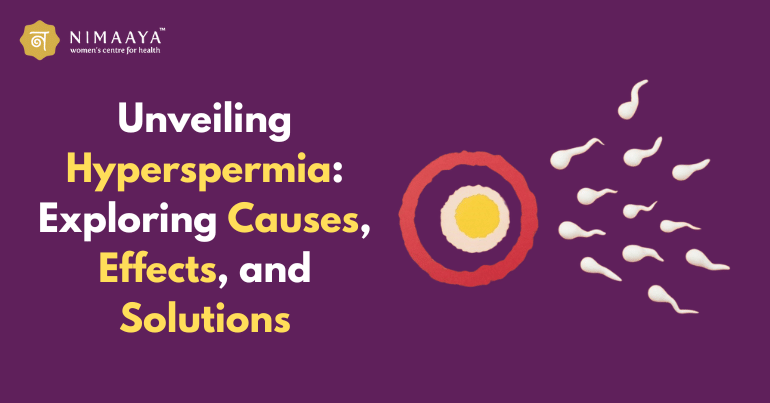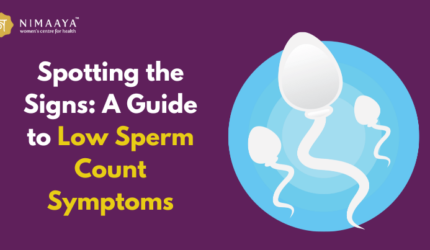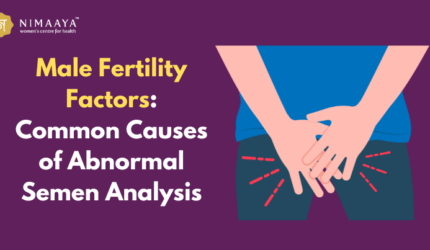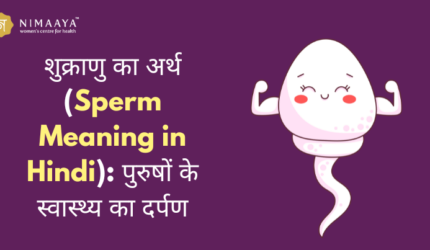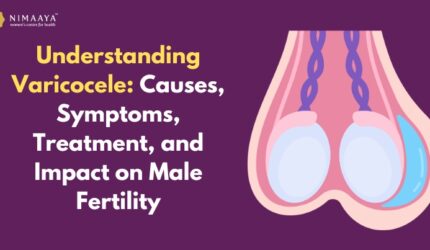Men and women have been dealing with infertility. While there was no cure earlier, they say that following a healthy lifestyle can help bring the changes. There are effective infertility treatments available today.
Hyperspermia is a common condition that affects men. It is a rare condition. An ejaculating man releases semen, which is a mixture of sperm and prostate gland fluid. Hyperspermia condition occurs when a man produces more semen than usual. This excessive quantity can range in over 5 ml per ejaculation.
Hyperspermia, a less common condition characterized by a low ejaculate volume in men, can lead to male reproductive system infertility issues.
There are no significant health problems related to this condition. But it can make it more difficult for a couple to become parents.
The presence of hyperspermia is unknown to more than half of the world’s population. A rare condition called hyperspermia affects men’s fertility. According to the survey results, the survey results diagnosed about 4% of men with this medical condition.
This blog will discuss everything about hyperspermia, from its potential causes to symptoms, treatment, and more.
What is Hyperspermia?
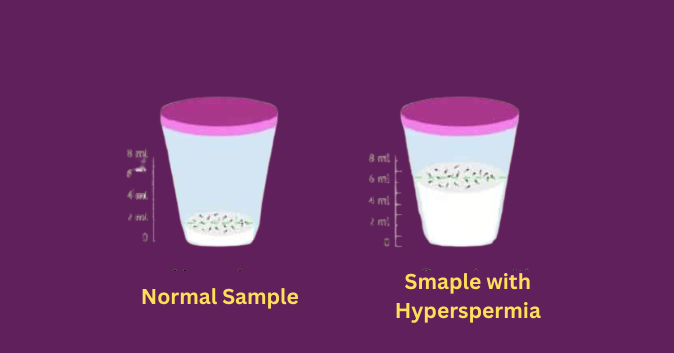
Hyperspermia causes an individual to ejaculate more than they usually do. The white fluid, known as semen, contains sperm to fertilize an egg and is released from the penis during an orgasm. Semen volumes range from 1.5 to 5 ml for an individual, but when volumes are significantly higher than average, hyperspermia is caused. The medical condition is the opposite of hypospermia, and it involves a low ejaculate volume under 1.5 ml.
In a study of around 396 males, the average risk of hyperspermia was found to be 3.53%, making it a relatively uncommon condition. Comparing this to the number of cases of hypospermia in these studies, which was found in 22.22% and 18.3% of individuals, respectively, it is much lower.
Who can get Hyperspermia?
Hyperspermia can affect adult males of any age. It is important to remember that, despite potential concerns, hyperspermia is usually not linked to serious health problems. However, seeking medical advice is vital to rule out underlying conditions or complications.
Types of Hyperspermia?
There are mainly two types of hyperspermia:
‣ Primary Hyperspermia:
This issue frequently results from a naturally occurring variation in an individual’s reproductive system and happens without an identifiable cause.
‣ Secondary Hyperspermia:
In this case, the increased semen volume results in specific underlying factors, such as inflammation, infection, or hormonal imbalances.
Causes of Hyperspermia?
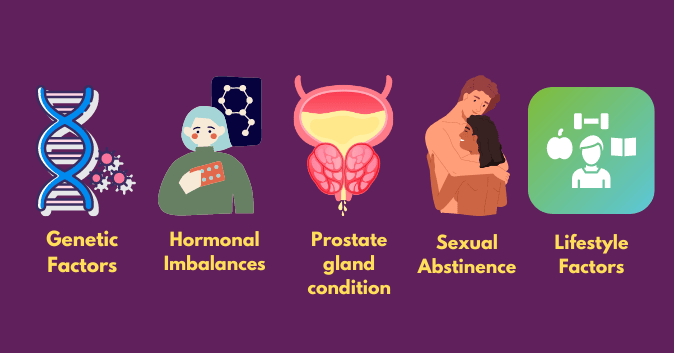
The exact cause of an abnormal level of sperm is yet to be known. Some of the common causes of hyperspermia are:
➛ Genetic Factors:
Genetic predisposition can play a role in hyperspermia, making it a natural variation in some individuals.
➛ Hormonal Imbalances:
Fluctuations in hormones, particularly testosterone, can influence semen production and potentially lead to hyperspermia.
➛ Prostate gland condition:
Conditions like inflammation or infection that affect the prostate gland can cause prostate conditions: An increase in semen volume.
➛ Sexual Abstinence:
Higher volumes of semen during subsequent ejaculations can be the consequence of prolonged periods of sexual abstinence.
➛ Lifestyle Factors:
Lifestyle factors, including diet, exercise, and general health, may influence semen production.
Symptoms of Hyperspermia?
Monitoring hyperspermia symptoms is recommended to facilitate prompt treatment. Accelerated therapy may aid in overcoming the obstacles. The following are among the typical signs of hyperspermia:
- Men with hyperspermia may find it challenging to conceive with their partners. There is a slight chance of miscarriage if their partner gets pregnant.
- One of the symptoms is high sexual drive, as the urge for sexual intercourse among men is higher than usual.
- Men who suffer from hyperspermia find it challenging to ejaculate due to their thick semen or lack of concentration.
- Delays in ejaculation are another issue brought on by hyperspermia, as the thick semen makes it difficult for them to remain in the ejaculatory state.
- The color of sperm also changes as it transforms into an off-white or yellow color.
- Another problem that a male with hyperspermia faces is fatigue and lightheadedness.
- Breathing issues are also another symptom of this health condition, as it gets difficult for men to breathe lightly after ejaculation when facing the problem.
- Stretchiness or tightness in the penis during ejaculation are additional symptoms.
- Thin semen will also affect those with hyperspermia.
- Impotence is also one of the symptoms of this health condition, as they might find it complex to get an erection, which is also considered male infertility.
Men who have hyperspermia will find it difficult to conceive with their partners. Maybe there won’t be a miscarriage even if they become pregnant. Comparatively, men with hyperspermia will have a higher sex drive than usual.
Does Hyperspermia Affect Infertility?

Hyperspermia will harm the man’s fertility.
The impact won’t always be the same. Even though many men ejaculate more frequently, their sperm count will still be below average. It will lead to the fluid becoming dilute.
The Hyperspermia sperm count will decrease significantly. Therefore, it will be tough for you to fertilize your partner’s eggs. Even when you can get your partner pregnant, the process will take longer than usual.
There will be more semen than usual, but there won’t be as many sperm as usual. Hyperspermia won’t affect fertility if your sperm count is average. A higher chance of miscarriage is one of the main issues it can bring about.
Diagnosed with Hyperspermia?
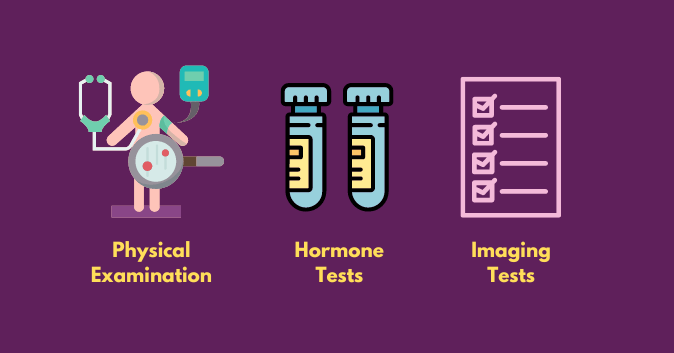
To accurately diagnose hyperspermia, fertility specialists will perform a series of tests to determine the condition of the male patient’s reproductive system and the quality of the semen produced.
❧ Physical Examination
A trained medical professional will conduct a physical examination to rule out any reproductive abnormalities, just like with any possible medical condition.
❧ Hormone Tests
Hormone tests can discover if low levels of testosterone cause the hyperspermia condition. We will identify any anomalies in the bloodstream or hormone production.
❧ Imaging Tests
A doctor may perform an ultrasound or other imaging test to identify any detrimental causes of infertility within the structure of the male reproductive system.
❧ Semen Analysis
A semen analysis test can reveal any issues with the sperm and analyze count, motility, quality, and other related semen conditions.
Treatment of Hyperspermia
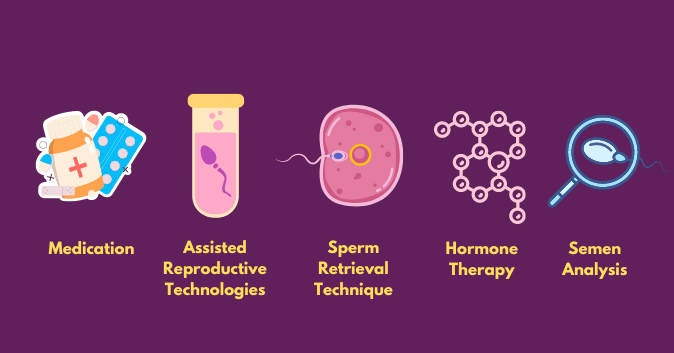
Depending on its identified underlying cause, the treatment for hyperspermia primarily varies. Treatment may not be required in cases of primary hyperspermia, but people should see a doctor to rule out any related conditions. Treatment of the underlying causes may be necessary for secondary hyperspermia.
Surgery to treat reproductive duct constrictions may be necessary in severe cases.
① Medication
Your doctor may suggest estrogen receptor blockers if hyperspermia causes your low sperm count.
Other medications, such as clomiphene citrate, can stimulate the brain to increase sperm production. It is still an off-label use of the medication. It is advisable to opt for reliable studies to determine the impact of the same.
② Assisted Reproductive Technologies
Assisted Reproductive Therapy or ART refers to a treatment through which the doctor can help individuals increase their conception charges. It could involve various procedures, like in vitro fertilization and intracytoplasmic sperm injection.
It involves mixing sperm and eggs, which typically happens externally to the body. Once the egg is fertilized, the egg will be transferred to the uterus to determine growth.
This will help with increasing your chances of getting pregnant or conceiving. ART can contribute significantly towards improving conception chances, thereby leading to the birth of infants worldwide.
③ Sperm Retrieval Technique
Various methods of retrieving sperm can include testicular sperm aspiration (TESA), percutaneous epididymal sperm aspiration (PESA), testicular sperm extraction (TESE), micro epididymal sperm aspiration (MESA), and microdissection TESE (microTESE).
④ Lifestyle Changes
Making adjustments to lifestyle factors such as diet, exercise, and sexual frequency might help regulate semen volume.
⑤ Hormone Therapy
Hormone replacement treatment may be taken into consideration if hormonal imbalances are causing hyperspermia.
⑥ Semen Analysis and Fertility Treatment
Assisted reproductive techniques such as intrauterine insemination (IUI) or in vitro fertilization (IVF) can help men facing difficulties with fertility due to hyperspermia get past possible barriers.
When should you see a doctor?
If your body produces excessive semen, you should take special care of it. You must consider contacting a doctor who will help treat the condition.
Furthermore, you need to visit a doctor if, despite your best efforts, you cannot conceive of your partner.
The doctor usually recommends a physical exam. You should check the sperm count to improve fertility eventually. The doctor will conduct different tests to measure your fertility.
Some of the standard tests that will help to analyze the condition include:
• Hormone Test
A blood test will check whether your body has enough testosterone. It will also detect the presence of additional male hormones in your body. One of the primary causes of infertility is also low testosterone.
• Semen Analysis
A doctor will take the sample of semen for testing. During intercourse, you can ejaculate in the cup. The doctor will take a sample to a lab, where the technician will check the sperm and count them.
Furthermore, the technicians at the lab will also check the quality of the sperm. It will enable them to ascertain whether your sperm is strong enough to get pregnant with your spouse.
It is also recommended that one keep a check on sperm production and fertility from time to time.
Hyperspermia Side Effects
➼ Physical side effects:
- Painful ejaculation
- Delayed ejaculation
- Dizziness after sex
- Fatigue or weakness after sex
- Increased urination
- Yellow or cloudy semen
- Enlargement of the testicles
- Swelling of the scrotum
➼ Psychological side effects:
- Anxiety about sexual performance
- Embarrassment about excess semen
- Difficulty controlling ejaculation
- Low self-esteem
Conclusion
Although it is not a condition that is commonly discussed, hyperspermia is a condition that needs to be understood. Understanding fertility’s causes, signs, and effects can help people seek the proper medical advice and treatment when necessary.
Well-informed people about this condition can make decisions regarding their reproductive health. Nimaaya IVF Center is a fertility center that offers comprehensive assessment and treatment plans based on the needs of both female and male patients. As a leading IVF center in Surat, we have proven success rates in helping individuals and couples. All you have to do is contact us, and we will take care of everything.

